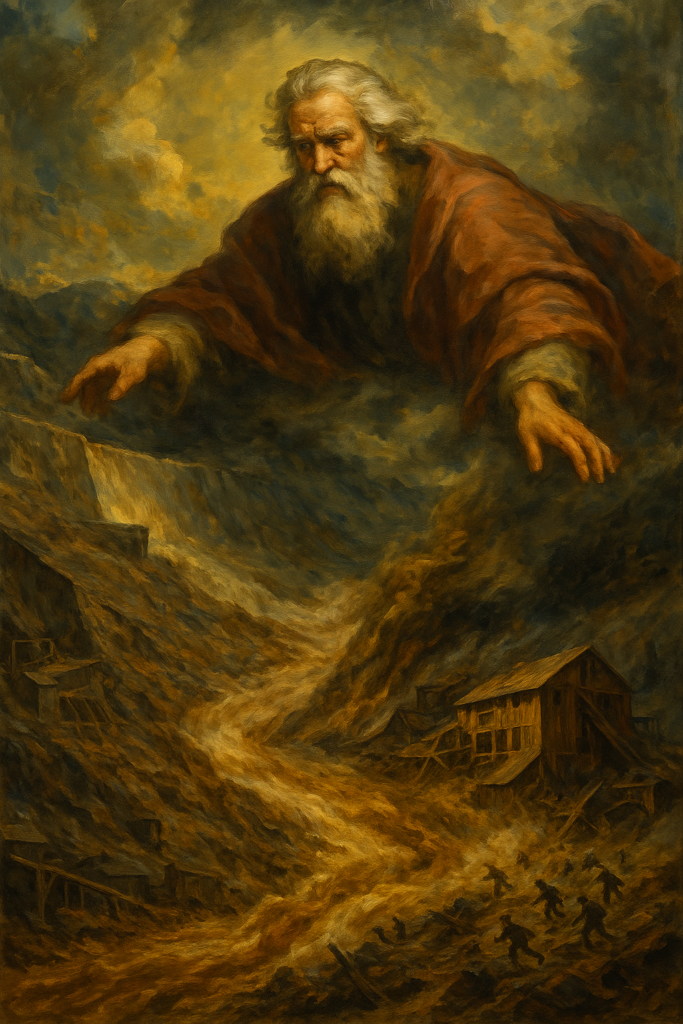
Image by Chat GPT
Most of are familiar with the phrase, “An Act of God”.
An “act of God” is a legal and insurance term referring to a natural event that is:
- Unforeseeable,
- Unpreventable, and
- Beyond human control.
Common examples include:
- Earthquakes
- Hurricanes
- Tornadoes
- Floods
- Lightning strikes
- Volcanic eruptions
In legal and insurance contexts:
An “act of God” can excuse parties from fulfilling contract obligations or limit liability, especially if the event caused damage or delay. For instance, a company might not be held liable for damages caused by a flood if it can prove the flood was an act of God and not due to negligence.
Act of God in Tailings Dam Failures:
A mining company may try to claim a tailings dam failure was caused by an act of God if the triggering event was a natural disaster, such as:
- An exceptionally rare earthquake,
- Unprecedented rainfall,
- Or other extreme natural forces not foreseeable under normal engineering standards.
Legal Challenges to This Claim:
Courts and investigators typically scrutinize this defense carefully, asking:
- Was the natural event truly unforeseeable?
(e.g., Was the rainfall well beyond historical maxima, or within range but not properly planned for?) - Was the dam properly designed, maintained, and monitored?
- Were warnings ignored or mitigations neglected?
If human negligence, poor engineering, or regulatory non-compliance contributed to the failure—even if a natural event was involved—the incident is not usually classified as an act of God.
Example: Brumadinho (Brazil, 2019):
- The disaster was not considered an act of God.
- Investigations found that the dam’s instability was knowable and improperly managed, leading to criminal charges against executives and engineers.
Conclusion:
While a mining company may invoke an “act of God” defense in a tailings dam failure, such claims most often fail if there’s evidence of foreseeable risk, mismanagement, or engineering flaws—which are common in these disasters.

